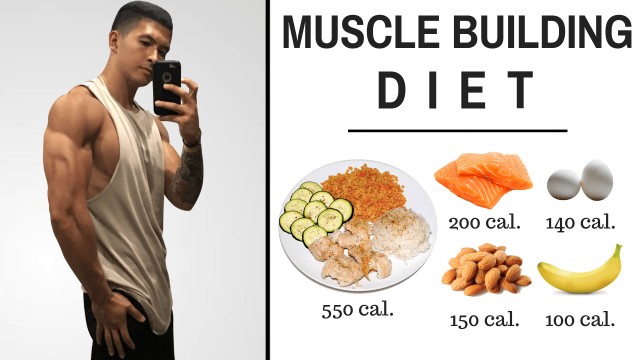News Blast: Your Daily Dose of Information
Stay updated with the latest happenings across the globe.
Bulk Up Without the Bloat
Discover how to gain muscle without the unwanted bloat! Unleash your fullest potential with our expert tips and strategies.
Top 5 Protein Sources That Won't Make You Feel Bloated
Finding protein sources that don't leave you feeling bloated can be a challenge, especially if you're mindful of maintaining a balanced diet. Here are the top 5 protein sources that provide nourishment without the discomfort:
- Eggs - High in protein and incredibly versatile, eggs are easily digested and help you feel satisfied without the consequences of bloating.
- Quinoa - This gluten-free grain is packed with protein and fiber, promoting a healthy digestive system while keeping you feeling light.
Continuing the list of protein sources that are easy on the stomach:
- Greek Yogurt - Rich in probiotics, Greek yogurt not only enhances digestion but also provides a substantial amount of protein.
- Chicken Breast - Lean and low in fat, chicken breast is a staple for anyone looking for a protein source that’s easy to digest.
- Lentils - Packed with protein and fiber, lentils can be a great addition to your meals while keeping bloating at bay when prepared properly.

How to Bulk Up Responsibly: Tips for Lean Muscle Gain
Building muscle mass is a common goal for many fitness enthusiasts, but it's essential to approach this process responsibly. First and foremost, prioritize a well-balanced diet rich in protein, healthy fats, and complex carbohydrates. Aim to consume at least 1.6 to 2.2 grams of protein per kilogram of body weight each day to support muscle repair and growth. Incorporate lean protein sources such as chicken, fish, legumes, and dairy into your meals. Additionally, consider timing your nutrient intake around workouts; having a meal or snack that includes both protein and carbohydrates before and after training can help optimize muscle recovery.
In addition to proper nutrition, it's important to engage in a smart workout routine tailored for lean muscle gain. Focus on compound movements such as squats, deadlifts, and bench presses, which target multiple muscle groups simultaneously. These exercises are not only effective for building strength but also help increase overall muscle mass. Remember to progressively overload your muscles by gradually increasing the weight, reps, or sets over time. Finally, ensure you allow adequate rest and recovery; your muscles need time to repair and grow, so aim for at least 48 hours of rest before training the same muscle group again.
Can You Gain Muscle Without Gaining Fat?
Gaining muscle without accumulating fat is a common goal for many fitness enthusiasts, and while it may seem challenging, it is indeed possible with the right strategies. Nutrition plays a pivotal role in this process; by focusing on a diet rich in lean proteins, healthy fats, and complex carbohydrates, individuals can fuel their workouts effectively while minimizing fat gain. Additionally, adopting a slight caloric surplus, where the body receives just enough extra energy to support muscle growth without excessive fat gain, can be beneficial. This approach involves monitoring macronutrient ratios closely and adjusting them according to specific fitness goals.
Alongside nutrition, the importance of a well-structured strength training program cannot be overstated. Incorporating a mix of compound and isolation exercises can promote muscle hypertrophy while encouraging the body to prioritize muscle gain over fat. It’s also essential to incorporate progressive overload, where the resistance or volume of training is gradually increased to challenge the muscles. With consistent effort, proper nutrition, and a smart training regimen, individuals can effectively build muscle while keeping fat gain to a minimum, proving that achieving a lean physique is entirely feasible.